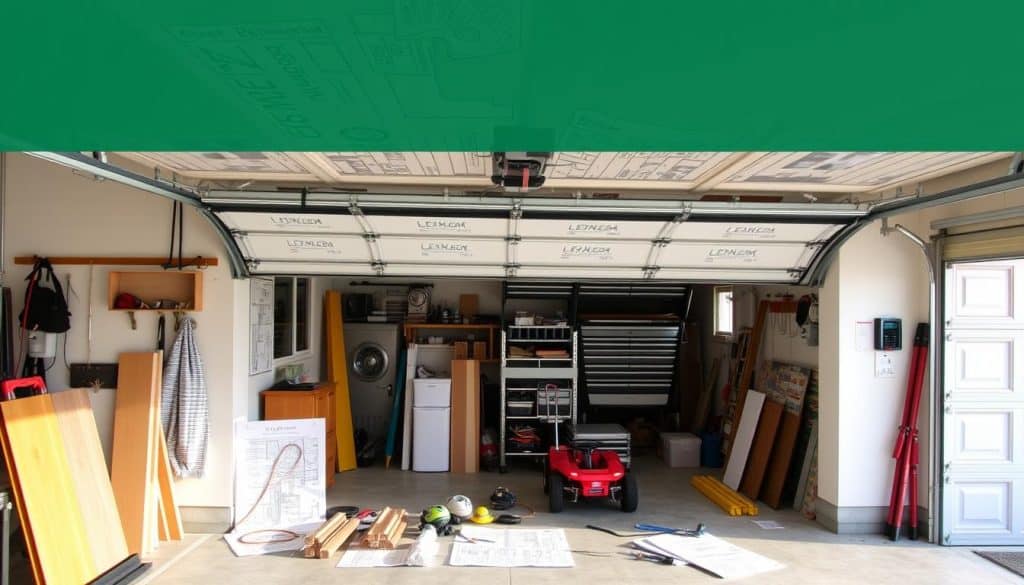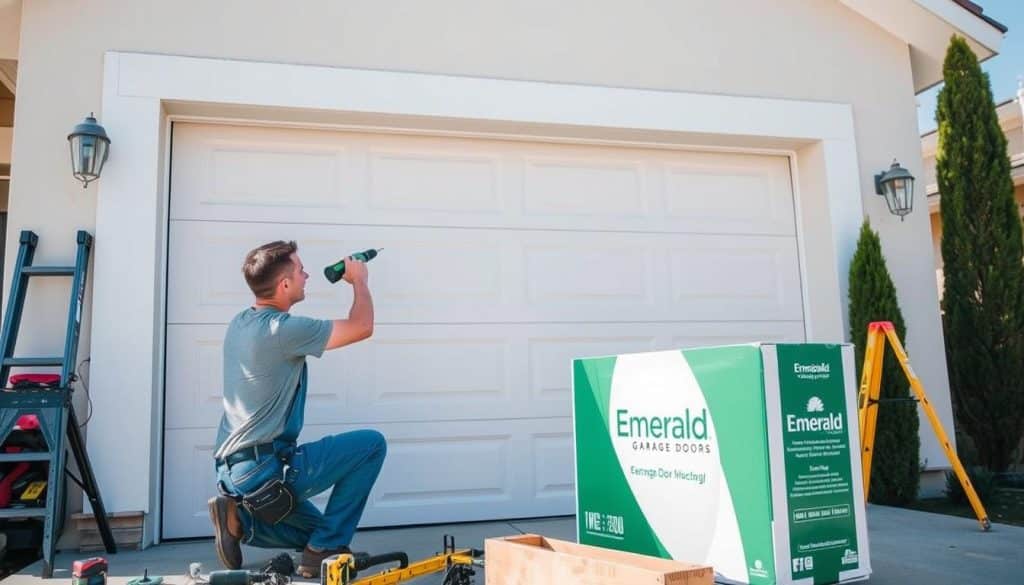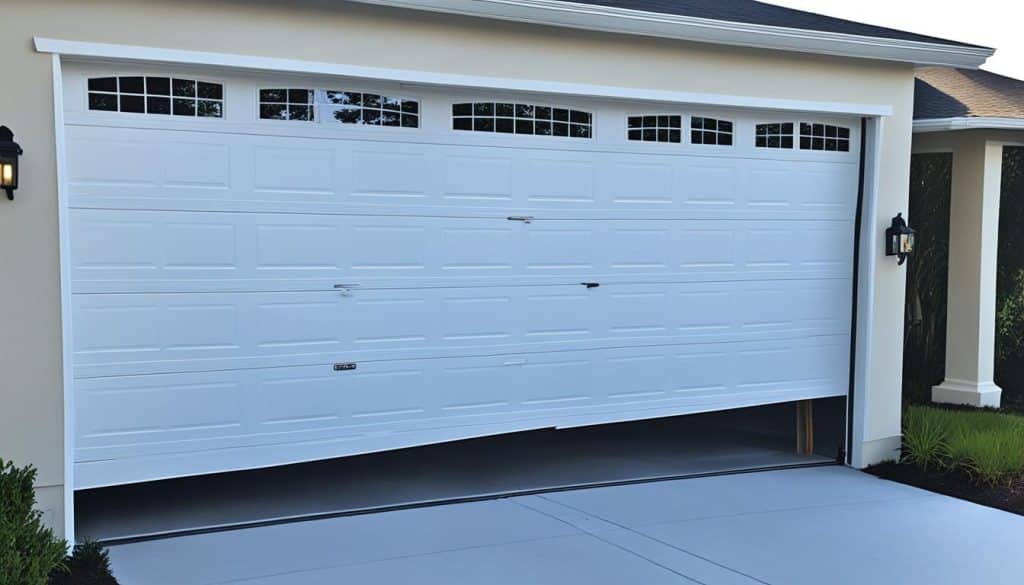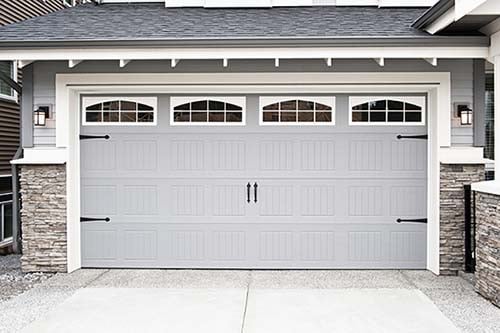Have you ever wondered whether you need more than just know how for your garage project? or Do I Need a Permit to Install a Garage Door? Tackling DIY jobs at home can get a bit complicated like when you put in a new garage door. You might be asking, Do I have to get a permit for that? The safest move is to call your local building office, since each town has its own guidelines.
Whether you’re sprucing up curb appeal or trying to shield your garage from storms in places like Florida, knowing whether to file paperwork is pretty important. Skipping the permit could mean headaches later—like costly fines, a door that doesn’t seal right, or even a drop in your home’s value. Do the homework first to keep your upgrade smooth and worth the cost.
Key Takeaways
- Municipal regulations may require a permit for installing a garage door.
- Homeowner projects without proper permits could face legal and financial consequences.
- Local authority approvals help ensure compliance with residential building codes.
- Skipping the permit process can lead to fines and issues with home sales.
- Safety risks from substandard installations are a critical concern.
- Permits play a significant role, specially in areas prone to extreme weather, like Florida.
Understanding Garage Door Installation Requirements
Putting in a new garage door is one of those big home projects every homeowner eventually faces. But before the first hinge gets installed, there are a few key rules you’ll need to know. Following them helps protect your home, your family, and your budget.
What are Garage Door Installation Requirements?
Garage door rules mainly focus on two things: safety and proper construction. They spell out the materials you can use and the steps you have to follow. Most of the time, you’ll also need to pull a construction permit, which helps make sure the job is done right the first time.
Role of Residential Building Codes
Every town has building codes that set safety and quality benchmarks. That means your new door has to meet certain standards to keep everything going up and down secure. Skipping those codes can lead to fines and possibly even forced removal of your door, so follow the rules and don’t skip the license part.
The Importance of Permits
When putting in a new garage door, grabbing a construction permit is a must. That little piece of paper means that pros will check your job along the way. They’ll see if everything follows local building codes. Kin the end, getting the permit can keep you from nasty fines, headaches with the law, or having to take the door back out and do everything over again.

Residential Building Codes and Home Improvement Permits
Installing a garage door can seem straightforward, but understanding building codes and permits will keep your project on the right path. Knowing the rules isn’t just a good idea it’s the law.
What are Residential Building Codes?
Codes for residential building set guidelines for building, repairing, and maintaining homes. They are really safety instructions. When you add a garage door, the codes cover things like how strong the door frame must be and what materials are allowed. By sticking to the codes, you help protect your family from accidents caused by poorly done work.
How Do Home Improvement Permits Affect Garage Door Installation?
Before you hammer or slide in a door, you need a home improvement permit. This permit acts like a green light that says, “Yes, your plan meets the rules.” After the door is up, an inspector will check that the work matches what was approved. This is a final safety check to make sure the door doesn’t risk anything later.
Common Regulations Across Different States
Although codes can differ from state to state, the big areas stay pretty equal. Most places will want to check the door frame’s strength, the materials you use, and any safety features the door must have. It’s still a must to get your permit from the local building office, since only they can green-light according to local specific rules.
Knowing these common guidelines ahead of time will save you time and headache later on.
Do I need a permit to install a garage door?
Whether you must get a permit for a garage door installation often hinges on the project’s details and local building codes. If the work involves major changes—such as modifying structural supports or adding electrical controls—then you’ll almost certainly need one. Even swapping out an old door with a new one may still require a quick approval in some areas.
Permits exist to verify that your project complies with safety and quality standards. They also help keep your home’s resale value intact since an unpermitted project can raise red flags during a sale. To dodge fines or being ordered to remove a door later, always consult your local housing office or building department.
Some municipalities enforce rules on all garage enhancements, and garage doors are often no exception. If you’re planning a DIY install, it takes only a minute to verify these regulations to make sure your work will be officially approved, offering you years of worry-free use after installation.
Because adding or replacing a garage door can affect the structural integrity of your house, such as modifying a load-bearing frame, accurately obtaining a permit is the best course of action. Doing so ensures that your project meets building codes, so you can enjoy the new door without later headaches.
DIY Garage Door Installation: What You Need to Know
Installing a garage door yourself is a great way to save cash and pick up new skills. However, the fun can turn stressful if local rules require a construction permit and you haven’t applied for one. Before you jump into the tools, check your city or county’s building department website or give them a quick call. This little step can prevent delays or even fines.

When a Permit is Required for DIY Installations
Any DIY job that messes with electrical wires, load-bearing walls, or other structural elements requires a permit. This stamp of approval makes sure your work passes local building codes, keeping your garage and your whole home safe.
Basic tasks like painting or swapping out weather stripping usually slide under the radar and don’t call for a permit. Still, the smart move is to give your local building authority a quick call or check their website. You’ll save headaches down the road.
Potential Risks of Not Having a Permit
Skipping a permit isn’t just a paper shuffle; it can land you massive fines and worst of all force you to tear out your newly installed garage door. The added duct tape “fix” can cost much more than the permit fee. Plus, any garage door motor or cable work done without inspections can lead to shocking or crushing hazards.
Follow the rules, keep the fine print in the clear, and everyone goes home safe, not sorry.
Working with Contractors: Ensuring Compliance
Starting a home project such as a garage door installation means knowing the rules. Always choose a licensed and insured contractor. This quick step makes sure all building codes and safety rules are followed.
Choosing a Licensed and Insured Contractor
Search for a contractor who is licensed and insured. For example, Emerald Garage Door Services is both. They are also bonded. When a contractor has these credentials, you are protected and can trust the quality of the work.
Importance of Background Checks
Checks on a contractor’s team are necessary. Emerald Garage Door Services runs these checks on every staff member. This practice adds trust and raises the level of professionalism on your project. When their staff arrives, you know the people working in your home are reliable.
Guarantees on Parts and Labor
Finally, review the guarantees offered. Emerald Garage Door Services has strong guarantees in place. This means if something goes wrong after the installation, you are covered. Guarantees are a signal the company is committed to quality and dependable work.
Conclusion
Following the local building codes and garage door installation rules is the best way to keep your home projects legal and safe. Securing the correct permits from the local authorities means your garage door gets put in right the first time.
Though permits and codes may sound confusing, they protect your property and investment. When you follow the guidelines established by officials, you’re doing your part to keep the entire neighborhood safe and keep projects within set standards. This oversight prevents costly mistakes and keeps your garage secure.
If you’re in Orlando, FL, partnering with a licensed contractor like Emerald Garage Door Services is a smart move. Founded by James Balfe, the company guides every installation step to ensure compliance with local rules and codes. That means your new garage door is set up correctly, protecting your investment and assuring you that the job is done right from the start.

FAQ
Do I need a permit to install a garage door?
Absolutely! You must have a permit to put in a garage door. The permit confirms your project follows local building codes. Without it, you risk fines and other legal issues later.
What are Garage Door Installation Requirements?
Installing a garage door must meet specific criteria. The framework must be sturdy, the materials need to be correct, and safety devices must be included. These rules come from local codes to protect everyone.
What is the Role of Residential Building Codes?
Residential building codes work like guideposts for any home project. They guarantee garage door jobs are safe and acceptable. Following these codes shields you and your neighborhood from future hazards.
Why are Permits Important?
Permits show your project is completed to safety and code standards. They save you from fines, boost safety, and often keep your home’s price stable. Permits are a must in any home upgrade.
What are Residential Building Codes?
Residential building codes are standards for building and renovating houses. They guarantee any update is safe and high-quality, keeping all homes safe and built to last.
How Do Home Improvement Permits Affect Garage Door Installation?
A home improvement permit means that an inspector will review your new garage door project. They check that everything is safe and matches building codes. This step is really important for keeping your home safe and your installation high quality.
What are Common Regulations Across Different States?
Rules can look different across state lines, but usual requirements cover how the door is built, what materials are used, and basic safety features. For your safety and peace of mind, look up your state’s exact requirements.
Do I need a permit to install a garage door?
Most of the time, yes. Installing a garage door changes how the garage structure works, so a permit is necessary. Always ask your local building department to get the exact permit needed.
When is a Permit Required for DIY Installations?
A DIY garage door project usually needs a permit if you are changing the structure or doing any electrical work. Small fixes that leave everything the same may not need a permit, but checking with the local building official is a safe step.
What are the Possible Risks of Not Having a Permit?
Skipping the permit can lead to fines, legal issues, and safety problems if the installation is not up to code. Homes with unapproved work may also lose value and be tougher to sell later. Always get the permit to avoid headaches down the road.
How Do You Choose a Licensed and Insured Contractor?
When hiring a contractor, look for one that is fully licensed, insured, and bonded—like Emerald Garage Door Services. This not only confirms they know the local building codes, but the insurance also protects you from any accidents that might occur on the job site. Always ask to see the paperwork and do a quick search to verify it, and don’t forget to check customer reviews for real-life experiences.
Why are Background Checks Important?
A thorough background check on the contractor and their crew is key to making sure you welcome only trustworthy individuals into your home. It helps you avoid red flags like a criminal past and confirms that employees are trained professionals. This extra step gives you a greater sense of security and helps the contractor maintain a high standard of professionalism.
What are the Benefits of Guarantees on Parts and Labor?
Warranties on both the parts they use and the labor they perform are a clear sign that a contractor stands behind their work. If a door malfunction happens a month down the line—or you notice a strange noise because of a faulty motor—you can get it fixed at no extra charge. This safety net gives you peace of mind and proves the contractor is dedicated to quality and customer satisfaction.

